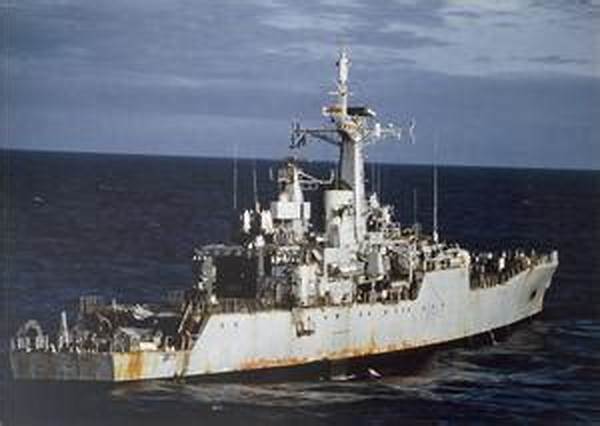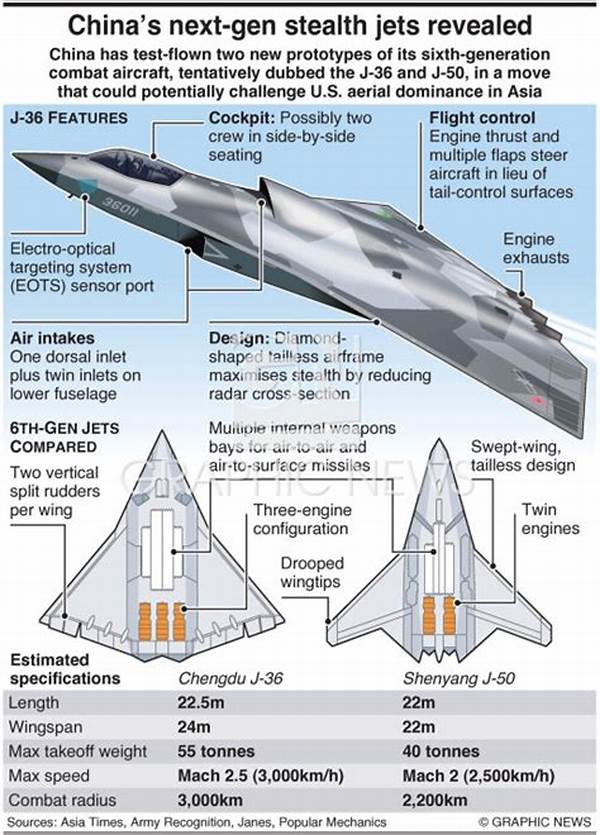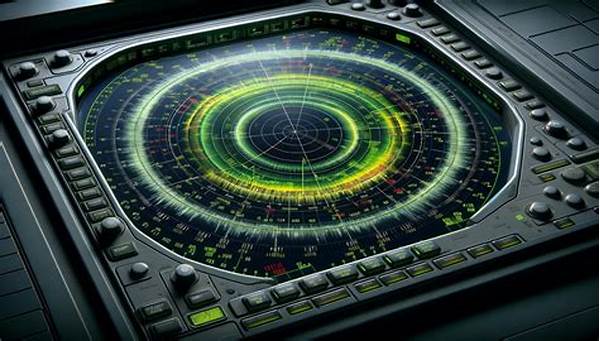The Falklands War, a conflict between Argentina and the United Kingdom in 1982, saw the deployment of several key military assets, one of the most significant being frigates. These warships played a vital role in naval engagements, providing support, protection, and attack capabilities. Understanding the role of frigates in the Falklands War highlights their importance and effectiveness during one of the most notable 20th-century conflicts.
Read Now : Innovations In Electronic Warfare Radar Systems
The Role of Frigates in the Falklands War
Frigates in the Falklands War were tasked with multiple critical missions. As versatile warships, they provided anti-submarine and anti-aircraft defense, safeguarding the naval task force from unseen threats. With their advanced weaponry, frigates engaged enemy forces, proving to be both a shield and a sword for the British fleet. The fearsome power they brought to the table was undeniable. Amidst the chaos of battle, frigates like HMS Brilliant and HMS Broadsword demonstrated exceptional resilience and adaptability. The fight was no walk in the park, and these vessels were in the thick of it.
Moreover, frigates conducted radar picket duties, adding a layer of protection with their sophisticated monitoring systems. This role was crucial in detecting incoming threats and ensuring the safety of aircraft carriers and other larger, more vulnerable ships. Frigates in the Falklands War were front and center, braving hostile waters and gunning it when things heated up. The daring maneuvers and strategic prowess of these ships essentially steered the course of naval warfare in the South Atlantic.
Notable Frigates in the Falklands War
1. HMS Brilliant: This bad boy was no slouch, coming in guns blazing with Sea Wolf missiles and keeping enemy aircraft at bay.
2. HMS Broadsword: Carrying the same missile might as Brilliant, she stood her ground with armored finesse. Frigates in the Falklands War didn’t mess around.
3. HMS Argonaut: A fiery contender in the fray, this ship faced the wrath of air raids but held her own, deserve a nod.
4. HMS Ardent: Unfortunately, in the line of fire, she took a hard hit but went down swinging, embodying the true grit of frigates in the Falklands War.
5. HMS Antelope: Started strong but met a fiery end due to unexpected explosive circumstances. Still, she gave it her all, showcasing the risks faced by frigates in the Falklands War.
Challenges Faced by Frigates During the War
Frigates in the Falklands War faced a headwind of challenges. The South Atlantic’s wild seas and unpredictable weather threw huge waves at these ships, testing their endurance to the limit. Navigating these rough waters was no joke, requiring serious skill from their crews. Add to that the threat of Argentine aircraft and Exocet missiles, and you’ve got frigates dancing a dangerous tango at sea.
Despite these hurdles, the frigates held their own like champs, taking hits but never backing down. Their resilience was a testament to their design and crew’s tenacity. Every mission had them holding their breath, knowing that any moment could be their last. It was a razor’s edge, and frigates in the Falklands War balanced on it with flaring defiance and a will to see it through.
The Impact of Frigates on the War Outcome
The frigates in the Falklands War undeniably tipped the scales. Their strategic use provided the British with a significant edge, offsetting numerical disadvantages and wielding technological superiority with gusto. They weren’t just boats with guns; they were key to turning the tide. With a blend of aggression and technology, these frigates did more than just float out there—they got results.
Read Now : Advanced Sensor Integration Techniques
The clash at sea was a tightrope walk, with lives and national pride hanging in the balance. The frigates didn’t just stand their ground; they forged a path through chaos. The legacy they carved from steel and sweat was solid, ensuring future naval tactics would echo their strategic brilliance.
Achievements and Sacrifices
Frigates in the Falklands War delivered countless achievements, though not without sacrifice. Heroes emerged as these ships faced down danger head-on. Clash after clash, the stakes were high, yet they charged forward, their spirit unbreakable. The cost of every victory was steep, with frigates pressing on despite taking serious heat.
The sacrifices made struck deep, the kind that shifted history’s course. Though the scars ran deep, the valor exhibited left a lasting legacy. Frigates in the Falklands War didn’t just mark time; they etched stories of bravery and resilience into the annals of naval warfare.
Aftermath and Lessons Learned
Post-war reflection on frigates in the Falklands War reveals a treasure trove of lessons. These ships redefined naval engagement tactics, showcasing how versatility and resilience could upend the odds. The experience reshaped military strategies, influencing future frigate designs and tactical approaches worldwide.
The deployment of frigates demonstrated how they could handle a complex and hostile environment like the South Atlantic with cool heads and sharp reactions. These lessons weren’t just about the past; they set the course for armed forces navigating the uncertainties of future conflicts. Frigates in the Falklands War weren’t just about steel and might; they became the crucible of modern naval warcraft.
Legacy of Frigates in the Falklands War
In the narrative of naval warfare, the frigates in the Falklands War have left a huge mark. Their story is one of courage, strategy, and the relentless drive to overcome. More than mere instruments of war, they embodied the spirit of adaptability and strength, charting a legacy that remains relevant in contemporary military strategies.
To future generations, these frigates serve as a reminder of the blend of innovation and bravery needed to turn the tides of war. They stand as iconic symbols of maritime might, proving that in the throes of conflict, determination and clever tactics reign supreme.
Conclusion
The frigates in the Falklands War weren’t just footnotes in history; they were key players in a high-stakes drama. Their role in securing a British victory was profound, demonstrating the crucial interplay of strategy, technology, and valiant human effort. As vessels of war, they exemplified the resilience and adaptability necessary to triumph in one of the late 20th century’s defining conflicts. Their impact on naval tactics and warfare continues to ripple through history, a testament to their enduring legacy and the strategic brilliance embodied in their service.




